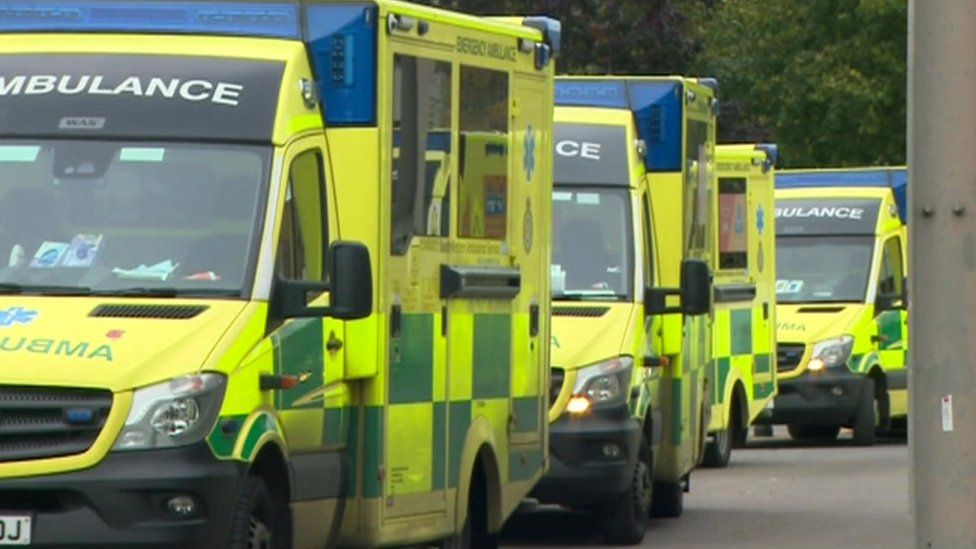ARTICLE AD BOX

South Western Ambulance Service said it was "sorry and upset" it did not provide a "timely response"
A 90-year-old woman waited 40 hours for an ambulance after a serious fall.
Stephen Syms said his mother, from Cornwall, fell on Sunday evening and an ambulance arrived on Tuesday afternoon.
She was then in the vehicle for 20 hours at the Royal Cornwall Hospital. It comes as an ambulance trust warns lives are at risk because of delays in patient handovers.
It was also reported a man, 87, who fell, was left under a makeshift shelter waiting for an ambulance.
A makeshift shelter was made to cover a man as he waited 15 hours for an ambulance
South Western Ambulance Service said it was "sorry and upset" at the woman's wait for an ambulance.
Mr Syms, from St Stephen, told BBC Radio Cornwall: "We are literally heartbroken to see a 90-year-old woman in such distress, waiting and not knowing if she had broken anything.
"The system is totally broken."
He said it took nine minutes before his 999 call was answered.
"If that was a cardiac arrest, nine minutes is much too long, it's the end of somebody's life," he said.
Mr Syms said paramedics were "absolutely incredible people".
He added: "The system is not deteriorating, it's totally broken and needs to be urgently reviewed."
Analysis: Philippa Roxby, health reporter
The average time it took an ambulance to reach a 999 call for something like a heart attack or stroke was nearly one hour in July in England.
That's more than three times longer than the 18-minute target.
The problem has been getting worse over the past two months, but the delays aren't confined to ambulance waits.
Many people across the UK have also spent hours waiting outside emergency departments after arriving in ambulances, because there is no room for them to be treated in the hospital itself.
That's linked to patients staying in hospital longer after they've recovered because there are issues providing the social care they need at home.
Delays at every stage are causing harm to patients, experts say.
The government says it has invested millions into ambulance services and is setting up a taskforce to look at ways of making sure patients are only in hospital for as long as they need to be.
A spokesperson for the South Western Ambulance Service NHS Foundation Trust said: "We are sorry and upset that we were unable to provide Ms Syms with the timely response and care that she needed.
"Our ambulance clinicians strive every day to give their best to patients.
"Health and social care services are under enormous pressure.
"We are working with our partners in the NHS and social care in Cornwall, to do all we can to improve the service that patients receive."
Follow BBC West on Facebook, Twitter and Instagram. Send your story ideas to: bristol@bbc.co.uk
Related Internet Links
The BBC is not responsible for the content of external sites.

 2 years ago
55
2 years ago
55








 English (US) ·
English (US) ·